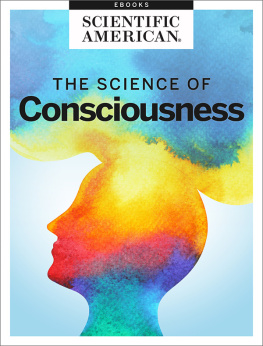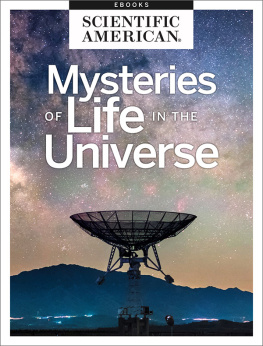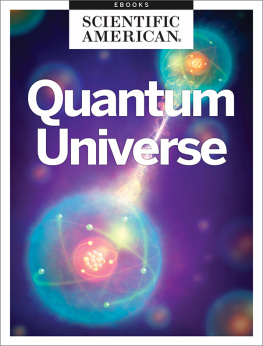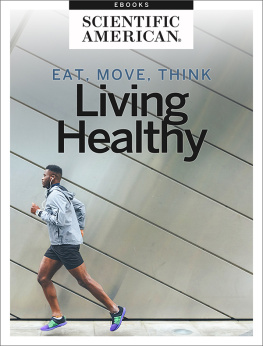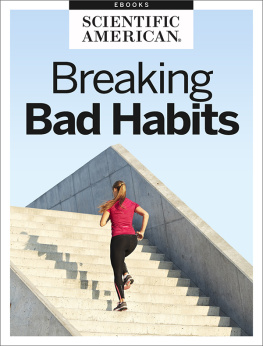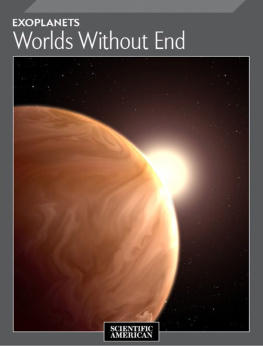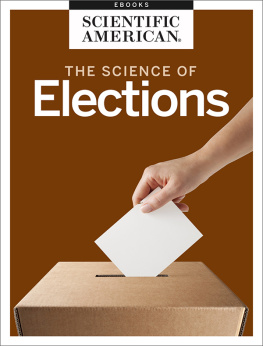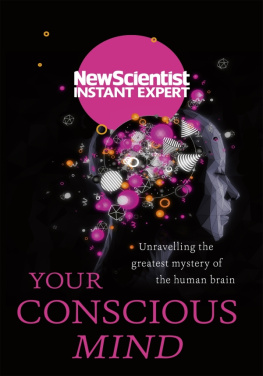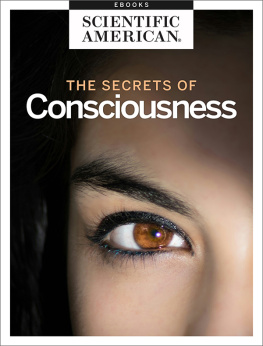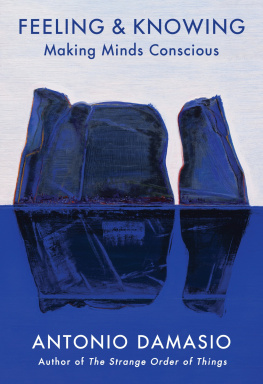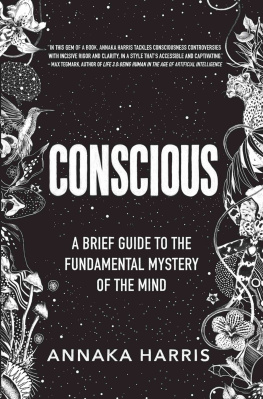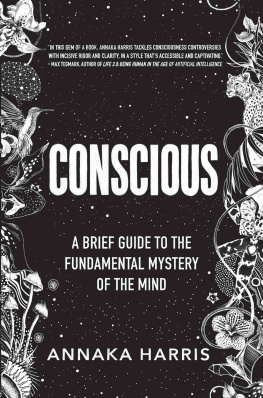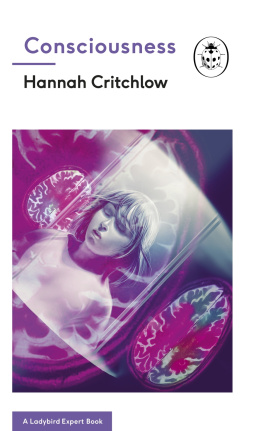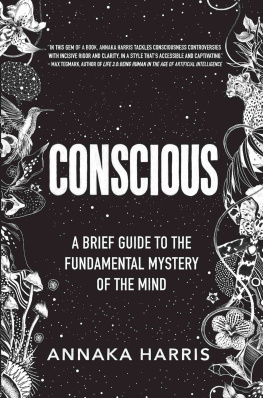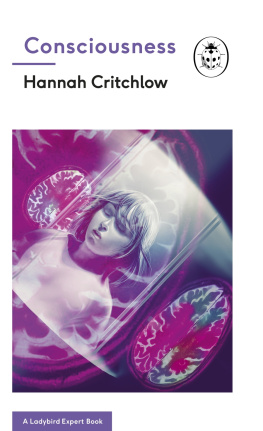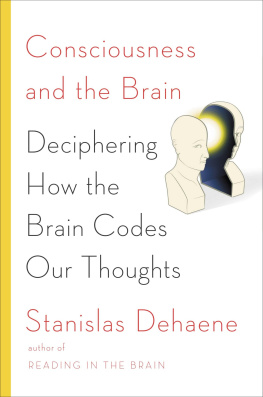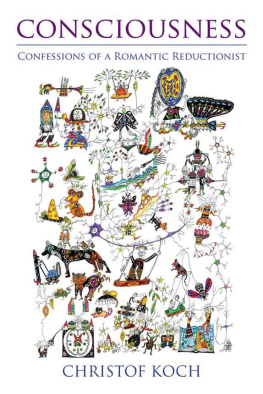The Science of Consciousness
From the Editors of Scientific American
Cover Image: Benjavisa/Getty Images
Letters to the Editor
Scientific American
One New York Plaza
Suite 4500
New York, NY 10004-1562
or editors@sciam.com
Copyright 2019 Scientific American, a division of Springer Nature America, Inc.
All rights reserved.
Published by Scientific American
www.scientificamerican.com
ISBN: 978-1-948933-11-7


The Science of Consciousness
From the Editors of Scientific American
Table of Contents
Introduction
by Karin Tucker
Section 1
1.1
by Susan Blackmore
1.2
by Christof Koch
1.3
by Steve Ayan
1.4
by Steve Ayan
1.5
by Todd E. Feinberg & Jon Mallatt
1.6
by Bernardo Kastrup
Section 2
2.1
by Deirdre Barrett
2.2
by Tanya Lewis
2.3
by Michael R. Nash & Grant Benham
2.4
by Scott O. Lilienfeld & Hal Arkowitz
2.5
by Andrea Anderson
Section 3
3.1
by Christof Koch
3.2
by Adrian M. Owen
3.3
by Sam Rose
3.4
by Anouk Bercht & Steven Laureys
Section 4
4.1
by George Musser
4.2
by Diana Kwon
4.3
by Matthew Huston
4.4
by Alexander S. Rich & Todd M. Gureckis
Altered States: The Science of Consciousness
by Karin Tucker
The nature of conscious experience is an equal-opportunity mystery that has vexed philosophers, theologians and scientists alike. Broadly, we understand consciousness as an internal level of awareness its not simply that we have ideas, emotions and perceptions, but that we know we have them. The hard problem, as philosopher David Chalmers put it, arises in trying to bridge the gap between brain activity and subjective experiences of feelings. How do neurons create a feeling of pain? Or the sense of a unique self? On the other hand, could conscious thought be an illusion? In this eBook, The Science of Consciousness, we delve into these questions and more to see what leading thought makers (excuse the pun) have to say.
We begin Section 1 by exploring the diverseand sometimes contentiousbiological, neural and philosophical approaches to defining consciousness, including physiological and behavioral indicators and techniques of assessment. In What Is Consciousness? expert neuroscientist Christoph Koch explains his research into the physical footprints of consciousness. Diametrically opposed to that view is philosopher Peter Carruthers, who theorizes that consciousness, judgment and volition are simply illusions. Susan Blackmore takes a fascinating look at whether humans are the only species to be conscious.
Section 2 explores altered states of reality, including dreams, hypnosis and the effects of anesthesia. In the The Stuff of Dreams by Tanya Lewis, researchers discuss how analysis of sleeping subjects provides insight into various forms of consciousness. Andrea Anderson explores experiences of sedation and the cumulative effects of stress and anesthesia on the brain in The Risk of Going Under.
In Section 3, we gather the latest advances in measuring consciousness, beginning with Christof Koch in How to Make a Consciousness Meter. Here Koch explains emerging technology that would be able to detect whether a patient was asleep, anesthetized or experiencing brain damage and how such technology can assist physicians and families make decisions about patients and loved ones who are unable to communicate their needs. Later, journalist Anouk Bercht interviews Steven Laureys, who leads the Coma Science Group at Liege University, about his work assessing awareness in comatose patients.
We wrap up this exploration into consciousness in Section 4 by exploring artificial intelligence and machine learning. George Musser tackles the emerging methods and technologies that endow artificial intelligence systems with features that were once considered uniquely human, like adaptation and imagination. In Lessons for Artificial Intelligence from the Study of Natural Stupidity, Alexander S. Rich and Todd M. Gureckis examine how artificial intelligence and machine learning systems share (and sometimes amplify) the same limitations of human judgment like errors and biases and how this can be corrected by examining the pre-existing literature on human psychology.
Exploring the concept of consciousness raises many philosophical and ethical questions that have been debated for generations. In this eBook, we present the arguments, current medical practices, and the emerging technology that endeavor to explain, identify and even replicate human consciousness.
SECTION 1
What Is Consciousness?
Decoding the Puzzle of Human Consciousness
by Susan Blackmore
Might we humans be the only species on this planet to betruly conscious? Might lobsters and lions, beetles and batsbe unconscious automata, responding to their worlds withno hint of conscious experience? Aristotle thought so,claiming that humans have rational souls but that otheranimals have only the instincts needed to survive. Inmedieval Christianity the great chain of being placedhumans on a level above soulless animals and below only God and the angels. And in the17th century French philosopher Ren Descartes argued that other animals have onlyreflex behaviors. Yet the more biology we learn, the more obvious it is that we share not onlyanatomy, physiology and genetics with other animals but also systems of vision, hearing,memory and emotional expression. Could it really be that we alone have an extra specialsomethingthis marvelous inner world of subjective experience?
The question is hard because although your ownconsciousness may seem the most obvious thing inthe world, it is perhaps the hardest to study. We donot even have a clear definition beyond appealing toa famous question asked by philosopher Thomas Nagelback in 1974: What is it like to be a bat? Nagelchose bats because they live such very different livesfrom our own. We may try to imagine what it is like tosleep upside down or to navigate the world using sonar,but does it feel like anything at all? The crux hereis this: If there is nothing it is like to be a bat, we cansay it is not conscious. If there is something (anything)it is like for the bat, it is conscious. So is there?
We share a lot with bats: we, too, have ears and canimagine our arms as wings. But try to imagine beingan octopus. You have eight curly, grippy, sensitivearms for getting around and catching prey but noskeleton, and so you can squeeze yourself throughtiny spaces. Only a third of your neurons are in a centralbrain; the rest are in the nerve cords in each ofyour eight arms, one for each arm. Consider: Is it likesomething to be a whole octopus, to be its centralbrain or to be a single octopus arm? The science ofconsciousness provides no easy way of finding out.
Even worse is the hard problem of consciousness:How does subjective experience arise from objectivebrain activity? How can physical neurons, with alltheir chemical and electrical communications, createthe feeling of pain, the glorious red of the sunset or thetaste of fine claret? This is a problem of dualism: Howcan mind arise from matter? Indeed, does it?
The answer to this question divides consciousnessresearchers down the middle. On one side is theB Team, as philosopher Daniel C. Dennett describedthem in a heated debate. Members of thisgroup agonize about the hard problem and believein the possibility of the philosophers zombie, animagined creature that is indistinguishable fromyou or me but has no consciousness. Believing inzombies means that other animals might conceivablybe seeing, hearing, eating and mating all in thedark with no subjective experience at all. If that isso, consciousness must be a special additional capacitythat we might have evolved either with orwithout and, many would say, are lucky to have.

